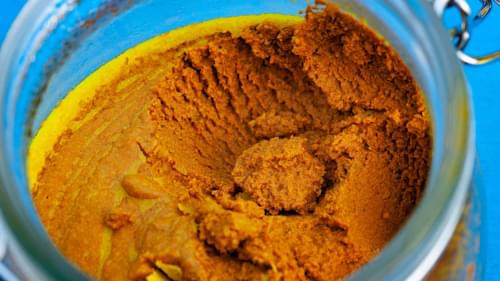Optimize Your Health With an Anti-Inflammatory Diet

An anti-inflammatory diet can be an excellent way to reduce inflammation and improve your health. Anti-inflammatory foods include fruits, vegetables, fish, nuts, and seeds; eating them can reduce inflammation. These foods are rich in antioxidants, which help combat oxidative stress and reduce inflammation in the body. Additionally, incorporating healthy fats like olive oil and avocados into your diet can also help reduce inflammation and promote overall health.
What are some common misconceptions about anti-inflammatory diets?
One common misconception about anti-inflammatory diets is that they are only suitable for people with chronic illnesses or inflammatory conditions.
However, this is not true.
Anti-inflammatory diets can benefit anyone, regardless of their health status. These diets emphasize eating fruits and vegetables, whole grains, and healthy fats. It's important to avoid processed foods, refined sugars, and trans fats.
Another misconception is that anti-inflammatory diets are restrictive and boring. Plenty of delicious and flavorful foods can be included in an anti-inflammatory diet. This includes spices like turmeric and ginger, which have natural anti-inflammatory properties, and various fruits, vegetables, and herbs.
Some people may also believe that following an anti-inflammatory diet means giving up all indulgences, such as desserts or treats. However, there are many ways to make healthier versions of these indulgences by using natural sweeteners, whole grains, and healthier fats. This allows individuals to enjoy their favorite treats while supporting an anti-inflammatory lifestyle.
Understanding that anti-inflammatory diets are adaptable, delectable, and appropriate for anyone looking to support their overall health and well-being will help dispel the myths surrounding them.
Understanding Inflammation and its Effects on the Body
Inflammation is a normal immune system response designed to help the body fight off invading organisms and heal from injuries.
However, chronic inflammation can wreak havoc on our health. It has been linked to various conditions, including arthritis, heart disease, and even certain types of cancer.
So, what can we do to combat inflammation and protect our health? One of the best ways is through a natural anti-inflammatory approach.
The Benefits of Eating Anti-Inflammatory Foods

Eating anti-inflammatory foods can have a multitude of benefits for our health.
Firstly, these foods provide a natural way to combat inflammation in the body, reducing the risk of chronic health conditions like cancer, arthritis, and heart disease. These foods contain nutrients, vitamins, and antioxidants that help boost our energy levels, improve digestion, and promote healthy skin.
An anti-inflammatory diet can also help manage weight and reduce obesity-related health risks. By making simple changes to our diet and incorporating these beneficial foods, we can optimize our health and enjoy the benefits of a natural anti-inflammatory approach.
What types of lifestyle changes can enhance the benefits of an anti-inflammatory diet?
In addition to following an anti-inflammatory diet, incorporating regular exercise into your routine can significantly enhance its benefits. Exercise has been shown to reduce inflammation and help maintain a healthy weight.
Stress management techniques, like meditation, mindfulness, or deep breathing exercises, can also contribute to the effectiveness of an anti-inflammatory diet.
Chronic stress can cause increased inflammation, so finding healthy habits to manage stress can positively affect your overall well-being. Additionally, getting enough sleep and maintaining a consistent sleep schedule can support your body's natural healing processes and reduce inflammation.
Making these lifestyle changes and adopting an anti-inflammatory diet can create a powerful combination for optimizing your health and well-being.
Building an Anti-Inflammatory Diet: Key Principles and Food Groups to Include
When building an anti-inflammatory diet, there are some fundamental principles to remember. First and foremost, focus on whole, unprocessed foods. This means incorporating plenty of fruits, vegetables, and whole grains into your meals.
These foods are packed with great nutrients and antioxidants, which help fight inflammation in the body.
Additionally, include sources of healthy fats, such as oily fish like salmon or sardines, avocados, and nuts and seeds. These fats have anti-inflammatory properties and are essential for a well-rounded diet.
Remember about herbs and spices! Turmeric, ginger, garlic, and cinnamon are powerful anti-inflammatory ingredients that you can easily incorporate into your cooking.
Examples of anti-inflammatory meals and recipes
Are you looking for some delicious and nutritious anti-inflammatory meals? Look no further! Here are a few examples of meals and recipes that incorporate anti-inflammatory foods to help reduce inflammation and optimize your health.
Turmeric Roasted Cauliflower with Chickpeas and Quinoa:
This flavorful dish combines the anti-inflammatory power of turmeric with the fiber and protein from chickpeas and quinoa.
Toss cauliflower florets, chickpeas, and turmeric in olive oil, then roast in the oven. Serve over a bed of cooked quinoa for a complete and satisfying meal.
Salmon and Avocado Salad:
This refreshing salad is packed with anti-inflammatory ingredients.
Grill or bake a fresh salmon fillet and serve it over a bed of mixed greens. Top with sliced avocado, cherry tomatoes, and a drizzle of olive oil and lemon juice. Add some chopped walnuts for an extra boost of healthy fats.
Quinoa Stir-Fry with Vegetables and Tofu
Stir-frying is a quick and easy way to incorporate anti-inflammatory ingredients into your meals.
Cook the quinoa according to the instructions written on the package. Stir-fry your favorite vegetables and tofu with soy sauce and a sprinkle of ginger and garlic. Serve the stir-fried mixture over the cooked quinoa for a satisfying and nutritious meal.
Incorporating Other Lifestyle Changes for Optimal Anti-Inflammatory Effects
In addition to including anti-inflammatory foods in your diet, you can make lifestyle changes to enhance the anti-inflammatory effects. One significant change is to prioritize regular physical activity.
Exercise has been shown to reduce inflammation and promote overall health. Get at least 30 minutes of moderate-intensity exercise most days of the week.
Another lifestyle change to consider is stress management. Chronic stress and anxiety have been linked to inflammatory conditions, so learning healthy stress management techniques is critical. Try deep breathing, meditation, or yoga as relaxation techniques.
Getting enough quality sleep is also important for reducing inflammation. Aim for 7-9 hours of sleep per night and establish a bedtime routine to promote better sleep.
Lastly, it's important to avoid smoking and limit alcohol consumption, as these habits can increase inflammation in the body.
Anti-Inflammatory Supplements to Consider
If you're looking to boost the anti-inflammatory effects of your diet, consider incorporating some of these supplements into your routine. While getting your nutrients from whole foods is always best, these supplements can provide an extra dose of anti-inflammatory power.
One popular option is curcumin, a compound found in turmeric. Curcumin has been shown to have powerful anti-inflammatory effects and can be taken in supplement form.
Omega-3 fatty acid supplements, such as fish oil and flaxseed oil, can also help decrease inflammation. Not to mention vitamin D, which is essential for immune function and can help regulate inflammation.
Making anti-inflammatory eating sustainable and enjoyable
Eating an anti-inflammatory diet doesn't have to be difficult or boring. It can be enjoyable and sustainable! Here are a few tips to help you make anti-inflammatory eating a lifestyle rather than a temporary fix.
First, focus on variety.
Next, experiment with different cooking methods and flavors. Try grilling, roasting, or sautéing your vegetables to bring out their natural flavors. And don't be afraid to experiment with herbs, spices, and healthy oils to add flavor to your dishes.
Another important aspect of making anti-inflammatory eating sustainable is meal planning and preparation. Set aside time each week to plan and prepare your meals in advance. This will save you time and ensure you always have healthy, anti-inflammatory options.
Lastly, remember to enjoy your meals! Eating should be a pleasurable experience. Engage all your senses while eating and practice mindfulness to enjoy and fully benefit from your anti-inflammatory meals.
